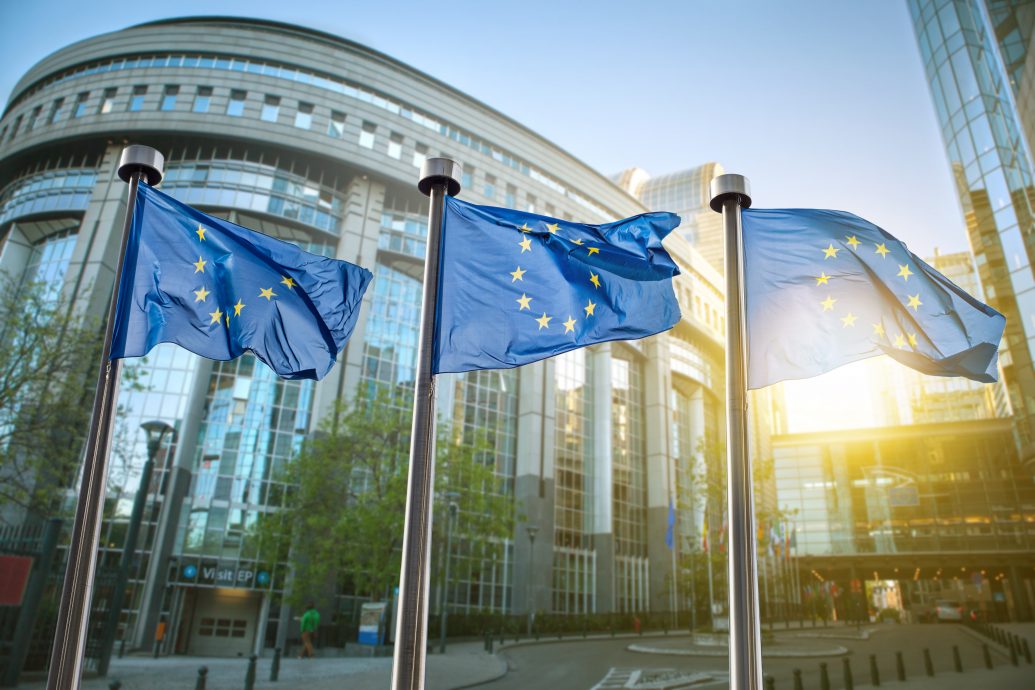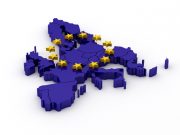Counting on the near-boundless sentimentality of the liberal conscience, Lukashenko hopes to blackmail the Europeans with their border.
The Matchmaker in Brussels
Thwarted elites are not good losers. They will resort to any maneuver to ensure that their opinions prevail—which is why I believe that Brexit is by no means a certainty, notwithstanding the recent referendum.
But say Britain were able to effect the departure from the European Union that the majority of its citizens want. In that case, the EU’s hopes for survival would rest squarely on economic catastrophe for Britain. For if it were able to prosper outside the Union, or even merely to maintain its current economic level, the value of the Union itself would be called into question by the peoples of Europe even more than is true today.
Thus, irrespective of soothing words to the effect that accommodation must be found and arrangements made that are mutually advantageous to London and Brussels, the imperative is that Britain (and, of course, the British people) be made to suffer for the impertinence they have showed. Admiral Byng, according to Voltaire, was hanged pour encourager les autres, to encourage the others; Britain must now be hanged to discourage the others.
Of course, this cannot be done without causing harm to European companies that do a lot of trade with Britain; but when it comes to the EU, politics always overrides economics. If it did not, the common currency would not have been created, for there was very little economic justification for its creation; to the contrary, there were many obvious economic disadvantages (for most member countries) in adhering to it. The European Project, so-called, is a political rather than an economic one. A prosperous economy is only desired insofar as it is necessary to produce a strong and powerful polity. The aim of the European Union is not peace but power.
The president of the European Commission, Jean-Claude Juncker, recently appealed to countries not to hold referenda on membership of the European Union for fear of reproducing the British result. There are, of course, valid arguments to be made against plebiscitary democracy, but these are not, I surmise, uppermost in Mr Juncker’s mind. It is more that he does not want the extreme frailty of the Union’s political legitimacy exposed in the clear light of day. It might be unfair to suggest also that the Union offers Mr. Juncker the only way he can escape the parish-pump scale of the politics of his own country, Luxembourg, and bestride the world stage like a colossus. The driving force of the Union and its so-called Project (never spelled out in any detail) is megalomania.
The opinion and wishes of Europe’s people, on Mr. Juncker’s view, should not only not be followed, but should be neither consulted nor even known. This contempt for the opinions and wishes of the ruled was inherent in the European “Project” from its inception, its founders believing in the incapacity of populations to know what was in their own best interest, and that a cadre of the enlightened knew their interest better than they. Insofar as there should be democratic oversight, it should be appearance rather than reality, for the sake of fooling the masses into believing that they were ruled by consent. Any pretense of such oversight must not be allowed to interfere with the serious business of benevolent, wise, but fundamentally bureaucratic or technocratic control of society. Politics was, in essence, to be abolished in favor of administration: the dream of every utopian from Plato to Marx and anarchists of every stripe.
It would be dishonest to deny that our societies have become so complex, and so technically sophisticated, that the idea that whole populations, or even their chosen representatives, can meet in a public forum and decide everything is unrealistic. In fact, none of us wants to have a direct say in everything, or to have to decide every detail of public administration. We are not Renaissance men with a grasp of the fundamentals of every branch of human knowledge. We want to assume that, when we turn the tap on, water will come out that is free of harmful germs or chemicals, and to assume that “they,” whoever “they” might be, have things more or less under control, and furthermore are actuated by benevolence, or at least not by malevolence. We all rely a thousand times a day on trust that is unspoken and even unrecognized.
The precise point at which political decisionmaking should occur, and the precise point at which that decisionmaking should consult and obey majority opinion, is far from easy to determine. I doubt that any abstract principle could be found that would cover every case and could be applied in mechanical fashion to every question. Should fluoride be added to the water supply, and if so, how much? I am confident in my own case that if I devoted my attention to this question I could come up with a reasonable answer. But what of the large part of the population that has never considered such a question in a rational way, and is inclined to panic at the first rumour of poison? We might claim that the voice of the people is the voice of God, but no one would claim that it is always and everywhere the voice of Truth.
On the other hand, riding roughshod over a population’s opinions and sentiments in the name of a supposedly superior rationality is not a very wise policy, either—especially where the question at issue is not a narrowly technical one. Mr. Juncker said that the problem of Europe is that there is no unifying sentiment in it: that the Sicilians, for example, had no idea how the Poles lived, and vice versa; furthermore, they probably didn’t care very much. There was a “lack of love” between them, he said. He seemed to hope that the bureaucracy in Brussels, acting as a kind of matchmaker, can eventually fix this.
In the race between bureaucratically-promoted love and spontaneously-generated hatred, the latter usually wins in the end. That is why the policy that might be in Britain’s national interest could be to make every possible practical preparation for Brexit—but slow the process down until there is nothing to exit from.



